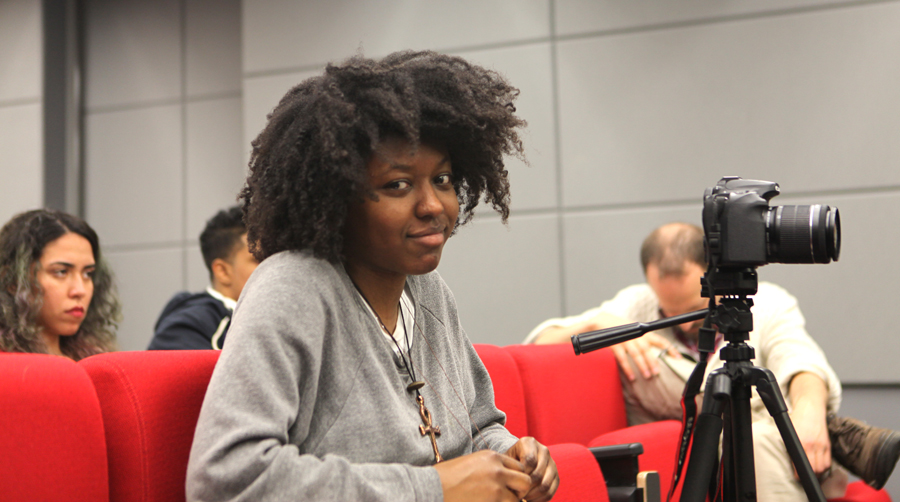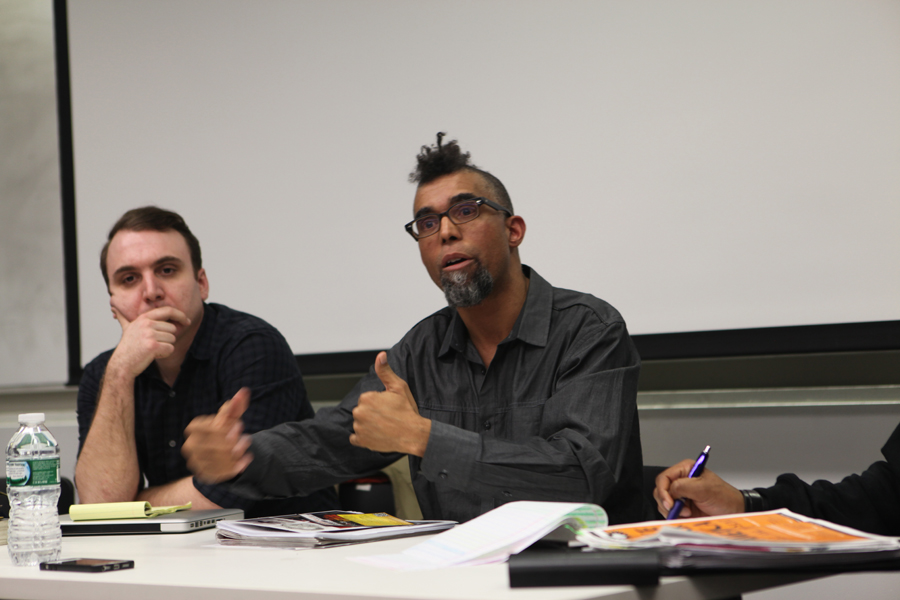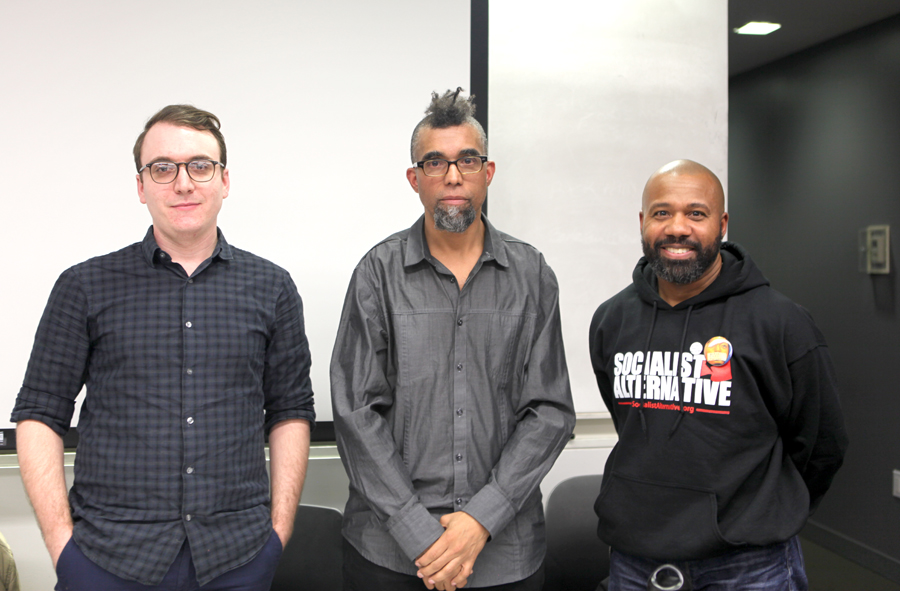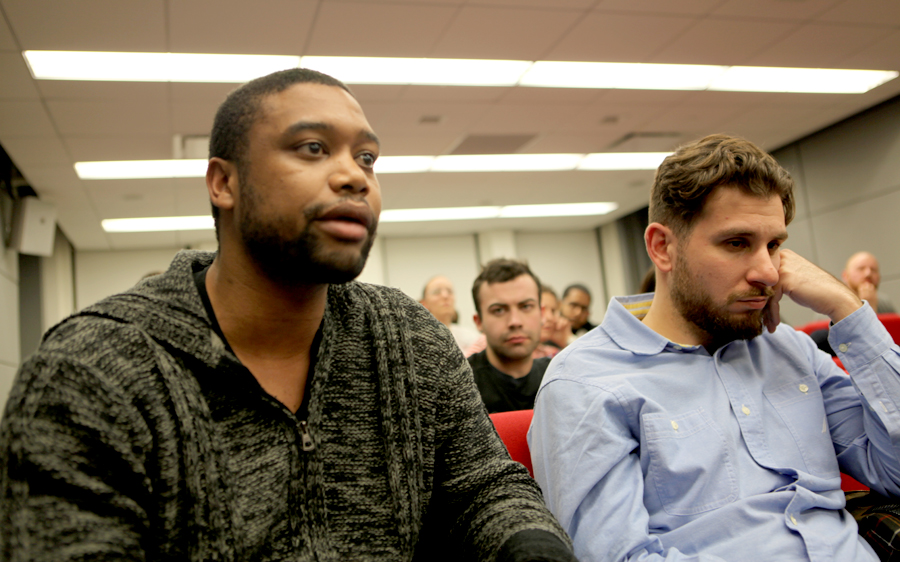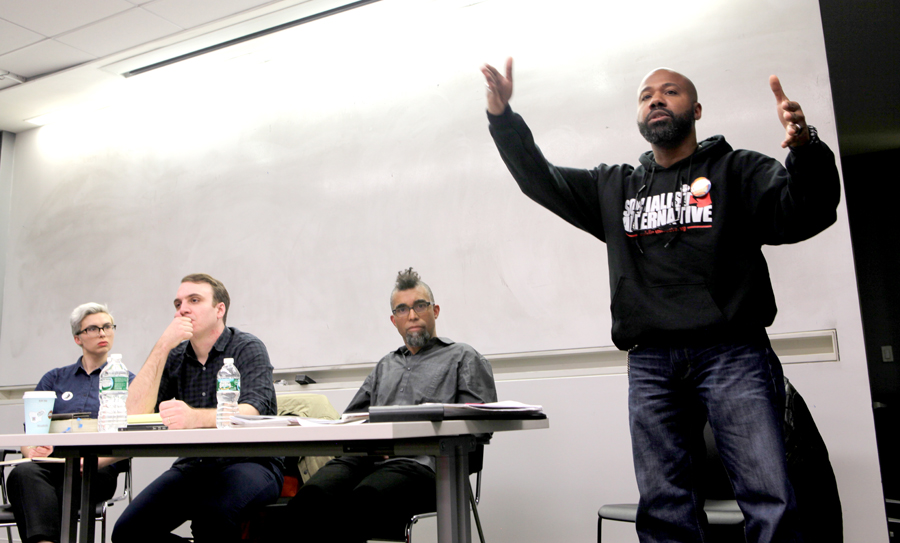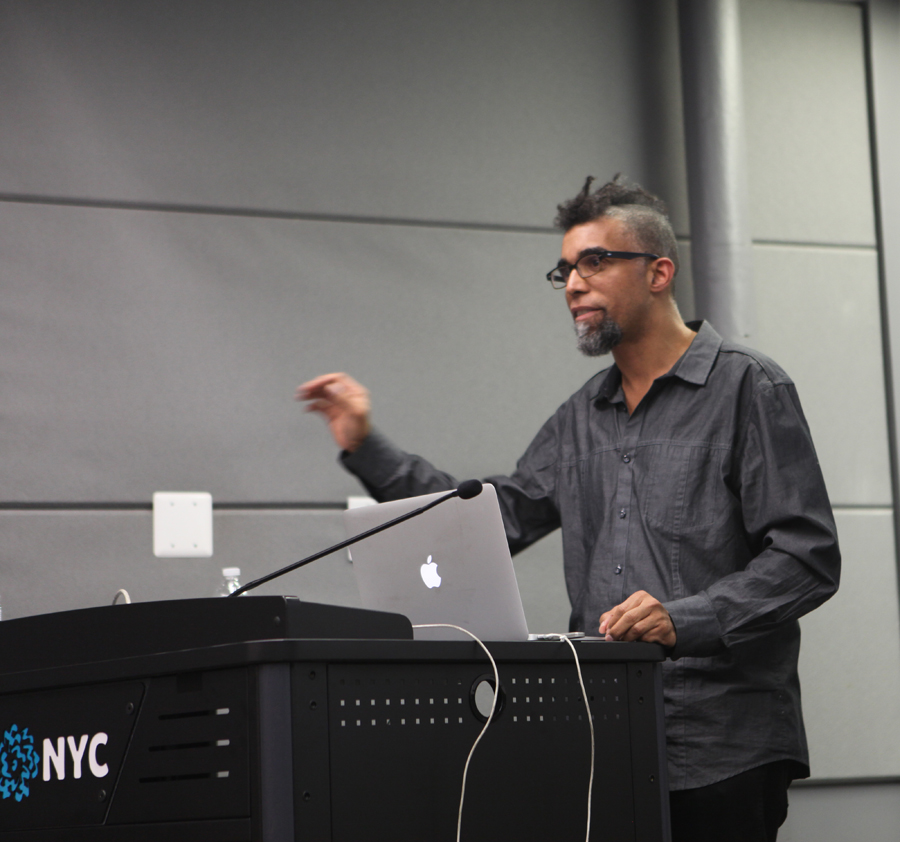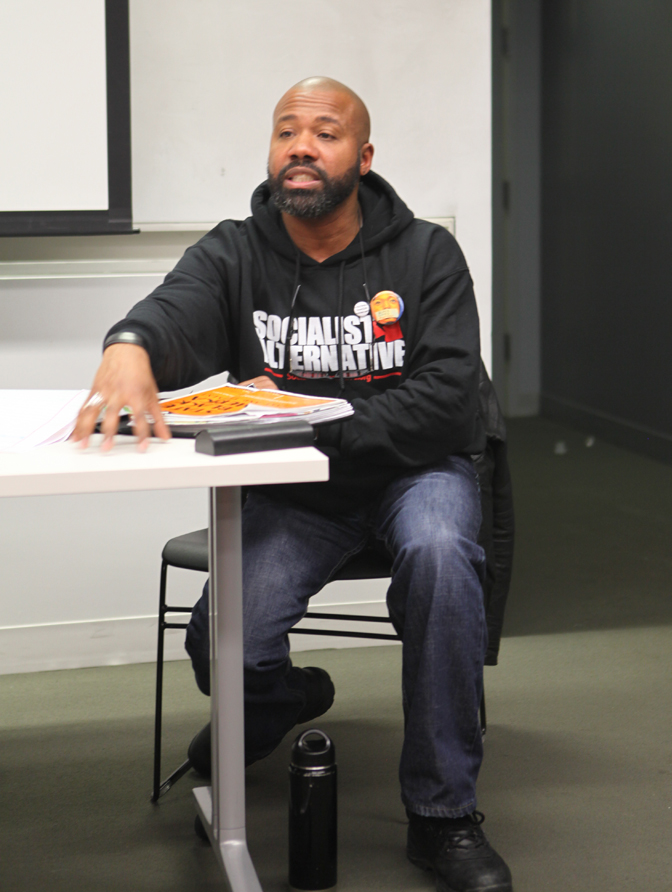New York
Wednesdays at 6:30pm beginning June 15
School of Visual Arts
380 2nd Ave, Room 804B
Chicago
School of the Art Institute, Chicago
Mondays 6pm
112 S Michigan Ave, Room 919
Houston
Sundays at 3:00 pm (ongoing)
University of Houston
MD Anderson Library (meet in the lobby)
London
Mondays at 6pm
Goldsmiths College, Richard Hoggart Building, Room 257
• required / + recommended reading
Marx readings pp. from Robert C. Tucker, ed., Marx-Engels Reader (Norton 2nd ed., 1978)
Recommended background readings
+ Edmund Wilson, To the Finland Station: A Study in the Writing and Acting of History (1940), Part II. Ch. 12–16 (from "Marx and Engels go back to writing history" to "Karl Marx dies at his desk")
+ James Joll, The Second International 1889–1914 (1966)
Week 1
+ Karl Korsch, "The Marxism of the First International" (1924)
• Karl Marx, Inaugural address to the First International (1864), pp. 512–519
• Ferdinand Lassalle, Open letter to the German workers’ movement (1863)
• Mikhail Bakunin, A Critique of the German Social-Democratic Program (1870)
• Bakunin, Marxism, Freedom and the State (1872)
Week 2
+ Korsch, Introduction to Marx, Critique of the Gotha Programme (1922)
• Marx, Critique of the Gotha Programme, pp. 525–541
• Marx, Programme of the Parti Ouvrier (1880)
• Karl Kautsky, The Class Struggle (1892)
Week 3
• Kautsky,The Social Revolution (1902)
Week 4
• Peter Kropotkin, The Conquest of Bread, especially Chapters 3, 11 and 12 (1906)
• Kropotkin, Anarchist Communism (1909)
Week 5
• Kautsky, The Road to Power (1909)
What Does Climate Change?
80 Years of Environmental Politics - Left and Right
Panelists:
Cora Bergantiños PhD., Socialist Alternative NYC, Postdoctoral Research Scientist at Columbia University
Joel Kovel, founder of Ecosocialist Horizons, Author of The Enemy of Nature: The End of Capitalism or the End of the World?
Andrew Needham, History NYU, Author of Power Lines: Phoenix and the Making of the Modern Southwest
Christian Parenti, Liberal Studies NYU, Author of Tropic of Chaos: Climate Change and the New Geography of Violence
The awareness of a growing planetary climate crisis in the 1990s appeared to coincide with a change: the final collapse of the traditional forces of the Old Left (communism and social democracy) and the consolidation of what many characterize as neoliberalism. For many green thinkers and activists, the political strength of the Right in the 1990s stymied any meaningful attempt to regulate greenhouse gas (GHG) emissions. But the global reach of climate change also generated sustained international resistance, which appears unified in its opposition to fossil fuel extraction. For Klein and climate justice activists, the combined weight of this resistance could “change everything” when coupled with the “erosion” of neoliberalism’s credibility, particularly in the wake of the 2008 financial crisis, and the assessment that climate change is inextricably bound up with capitalism (i.e., that climate change cannot be regulated or solved using “greener” forms of capitalism, but would require a “system change”).
Yet amidst the proliferation of activity--from blocking pipelines, to campus fossil fuel divestment campaigns, to blockades to stop hydraulic fracking and mountaintop removal coal mining projects and protests at international climate talks--it remains unclear how climate activism might lead to something different. U.S. Democrats, for example, appear poised to benefit from discontents around inaction on climate change regulation (in spite of advancing neoliberal reforms in the 1990s under Bill Clinton). In the E.U., climate activism has taken a back seat to anti-austerity, as governments responsible for the strictest austerity are largely credited with leadership in decarbonizing their economies. In fact, while an agreement overhauling the Kyoto Protocol seems increasingly likely at the Paris Conference of Parties (COP 21), the same cannot be said about theprospects for “system change.”
The focus of this panel is to consider what remains unchanged by the climate crisis. For there seems to be a continued problem of how discontents under capitalism become readily integrated into new forms of capitalism; a process whereby we unwittingly contribute to the perpetuation of capitalism without intending to. We ask panelists to consider how we might arrive at a post-carbon future from the Left. What would a Left response to climate change look like? How does this differ from the Right?
Hosted by the Platypus Affiliated Society in conjunction with
the SVA Black Student Union
Panelists:
Ben Blumberg (Platypus Affiliated Society)
Eljeer Hawkins (Socialist Alternative/CWI)
Dread Scott (Artist)
Moderated by: Allison Hewitt Ward (Platypus)
Introduced by: Tiffany Freeman (SVA Black Student Union)
11th March 2015
School of Visual Arts
136 West 21st Street
Room 418F
The widely publicized killings of black men by
police and the resulting movement with its slogan “Black Lives Matter” puts
back on the agenda of a beleaguered American Left a seemingly perennial
question, one that evokes a long history of struggle, longing, and
disappointment. With a black president in the White House having survived or co-opted the #Occupy Movement, the Black Question seems to pose a return to the old platitude that America is racist. At the same time, precisely because of recent history it seems necessary to resist a complacency that threatens to obscure the precise nature of the present, not to mention an adequate analysis of how the Left got where it is today. Such skepticism would appear doubly warranted in light of the fact that the Democrats seem way out in front of this movement, likely soon to have all the necessary police officials and the black vote duly lined up on their side. Given these circumstances and the dangers of yet another historical round of disappointment, another course in diminishing expectations and demobilization, now would seem an opportune moment to reflect
on how this movement might indeed be transformed into the herald of a genuine revival of the Left here in the United States, where it is so badly needed.
The widely publicized killings of black men by police and the resulting movement with its slogan “Black Lives Matter” puts back on the agenda of a beleaguered American Left a seemingly perennial question, one that evokes a long history of struggle, longing, and disappointment. With a black president in the White House having survived or co-opted...
Speakers:
Boris Kagarlitsky: Transnational Institute
Mel Rothenberg: Chicago Political Economy Group
Christoph Lichtenberg: International Bolshevik Tendency
Last year marked the 25th anniversary of the 1989 revolutions—the ‘Autumn of Nations’ in the Soviet bloc. For an entire generation now of age, the USSR and the Cold War are only historical relics. 1989 is largely remembered as a decisive close to the Cold War contest between communism and capitalism—with the victory of the latter casting a seemingly damning verdict against Marxism as a form of politics. The planned economies based on collectivized property of these states were indicted as failures, and their totalitarian regimes called into question the very notion of working class rule. The fall of communism thus profoundly affected the Left’s ability to imagine the overcoming of capitalism, and the possibility of a classless society beyond it. But in passing into history, the meaning of 1989 can also be reconsidered.
The Platypus Affiliated Society wants to use this anniversary to reassess the question of how 1989 weighs on the present. What is the significance of 1989 in its historical context, and what is its relevance for Left politics today? This panel was held by the Platypus Affiliated Society on Feb. 17th, 2015 at NYU.

